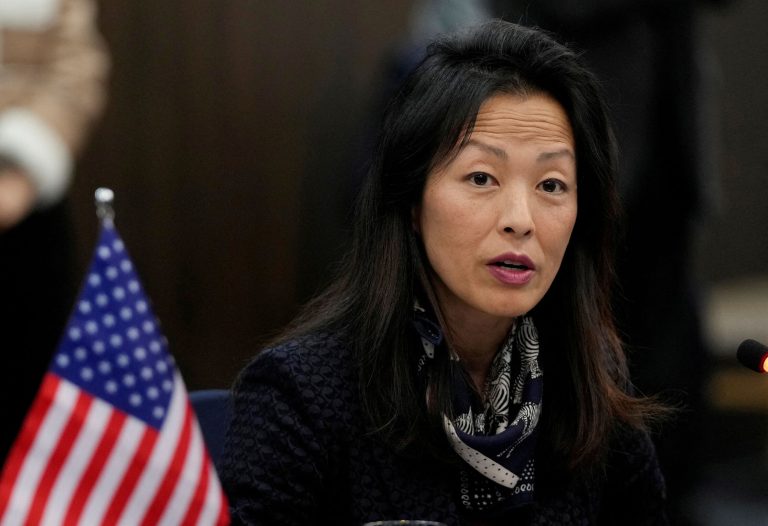On July 9th, President Joe Biden passed an executive order (EO) said to be aimed at “promoting competition” in the American economy by attacking “the trend of corporate consolidation.” The executive order calls on the Federal Trade Commission (FTC) and Department of Justice (DoJ) to enforce antitrust laws “vigorously” and for agencies to “challenge prior bad mergers.”
“For decades, corporate consolidation has been accelerating. In over 75% of U.S. industries, a smaller number of large companies now control more of the business than they did twenty years ago. This is true across healthcare, financial services, agriculture and more. That lack of competition drives up prices for consumers,” according to the order.
“Barriers to competition are also driving down wages for workers… Inadequate competition holds back economic growth and innovation,” the fact sheet reads. Among the sectors included in the executive order is the banking and consumer finance industry.
The EO stated that the United States has lost 70 percent of its banks in the past four decades, with around 10,000 bank closures. Mergers and acquisitions were responsible for many of the closures, and federal agencies have not formally denied a bank merger application in over 15 years.
Biden’s order argues, “Excessive consolidation raises costs for consumers, restricts credit for small businesses, and harms low-income communities.” The document states that bank closures can lead to a 10 percent decline in the number of small businesses lending and leads to higher interest rates. Customers “cannot easily take their financial transaction history data” to a new bank, which makes it difficult for them to switch banks.
Success
You are now signed up for our newsletter
Success
Check your email to complete sign up
The president outlined two orders related to the banking and consumer financing industry.
- The first order encourages the DoJ and other agencies responsible for banking, such as the Office of the Comptroller of the Currency (OCC), the Federal Reserve, and the Federal Deposit Insurance Corporation, to “update guidelines on banking mergers to provide more robust scrutiny of mergers.”
- The second order asks the Consumer Financial Protection Bureau (CFPB) to issue rules allowing customers to download banking data and take it with them to open a different account.
Dodd-Frank and executive order
The CFPB is an agency created as a result of the Dodd-Frank Wall Street Reform and Consumer Protection Act enacted in 2010 by the Obama administration in the aftermath of the 2007-2009 Great Recession. The agency was tasked with protecting consumers against abuses related to mortgages, credit cards, and other financial products.
The Volcker Rule, a set of provisions within the act, restricted banks from making certain kinds of speculative investments. Agencies such as the Office of Financial Research and the Financial Stability Oversight Council were created to identify threats to America’s financial stability.
In addition, the Orderly Liquidation Authority was established to handle the process of liquidating large companies, and the Federal Reserve was granted new powers to regulate institutions deemed systemically important.
Several critics have argued that the law has negatively impacted small banks and economic growth. Republicans have called for repealing the law either partially or wholly. In an interview with Washington Examiner, Republican Representative Patrick McHenry, member of the Financial Services Committee, criticized Biden’s July 9 executive order.
He called the order’s plan for banks “an attempt by Democrats to clean up a mess they created with Dodd-Frank. He said the law’s regulations and mandates led to increased consolidation in the banking sector.”
“When you find yourself in a hole, the first rule is to stop digging. Democrats have instead decided to double down and want to impose even more regulation… This won’t help institutions, especially small and community banks, better serve their customers or create more competition in financial services,” McHenry said.
Industry reactions
On July 9, Greg Baer, President, and CEO of the non-partisan Bank Policy Institute (BPI), an entity that advocates for the financial services industry, released a statement refuting the EO’s assertion that the sector needs more competition. He stated that banking is among the “most competitive, least concentrated industries” in the United States.
“Moreover, banks continue to lose business to unregulated FinTechs or government-sponsored enterprises, whose presence in the market current DoJ guidelines inexplicably ignore in assessing market competition. Those guidelines should be amended to reflect the underlying law,” Baer said.
The U.S. Chamber of Commerce released a statement criticizing the executive order as a “government knows best” approach, and said that it fails to advocate for market-based competition.
In the statement, Vice President and Chief Policy Officer Neil Bradley pointed out that the American economy needs both large and small businesses to thrive. He accused the order of being “built on the flawed belief” that the American economy is over-concentrated, and fails to generate the private investment necessary for innovation.
Bradley said the EO’s “broadsided claims” were “out of touch with reality.” He added that the chamber would “vigorously oppose calls for government-set prices, onerous and legally questionable rulemakings, efforts to treat innovative industries as public utilities, and the politicization of antitrust enforcement.”
In addition to banking, the executive order also targets other sectors such as technology, internet services, agriculture, transportation, and healthcare.















